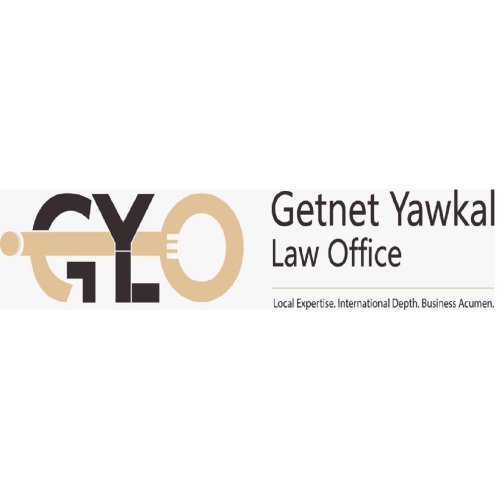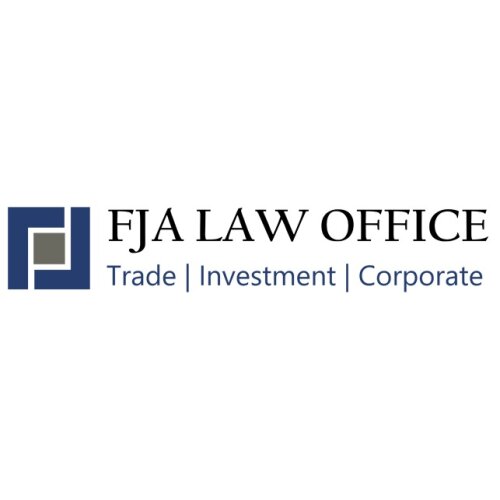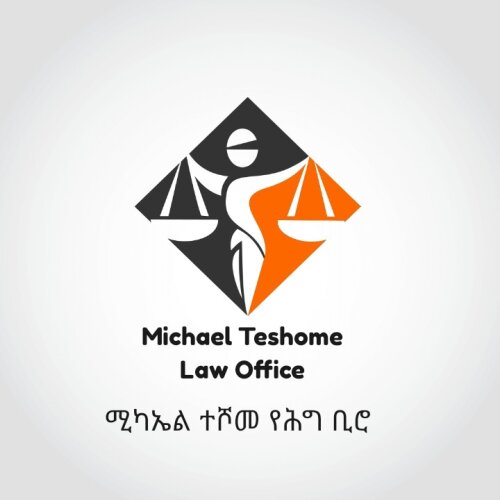Best Antitrust Litigation Lawyers in Addis Ababa
Share your needs with us, get contacted by law firms.
Free. Takes 2 min.
List of the best lawyers in Addis Ababa, Ethiopia
About Antitrust Litigation Law in Addis Ababa, Ethiopia
Antitrust litigation law in Addis Ababa, Ethiopia, focuses on ensuring fair competition within the marketplace and preventing business practices that could harm consumers or restrict competition. The legal framework prohibits a range of anti-competitive behaviors such as price fixing, market allocation, bid rigging, and abuses of dominant market positions. As Ethiopia's economy continues to grow and diversify, competition law and antitrust litigation have become increasingly important to protect both businesses and consumers from unfair practices. The city of Addis Ababa, being the economic hub of the country, is at the forefront of legal developments and enforcement in this area.
Why You May Need a Lawyer
Antitrust litigation can be complex and requires a strong understanding of both the local laws and business regulations. You may need a lawyer if you are:
- Accused of participating in anti-competitive practices such as price fixing, collusion, or monopolistic behaviors
- Facing government investigations or enforcement actions by the Ethiopian Competition Commission
- Concerned that a competitor or another market player is engaging in unfair business practices that harm your company
- Unsure how competition laws apply to a proposed business merger, acquisition, or joint venture
- Seeking to defend your company against private antitrust lawsuits from competitors, consumers, or other stakeholders
- Needing advice on compliance policies to avoid violating competition laws
- Pursuing damages for harm caused by anti-competitive practices of other businesses
Local Laws Overview
Antitrust litigation in Addis Ababa is primarily governed by the Ethiopian Trade Competition and Consumers Protection Proclamation. Some key aspects of the local laws include the prohibition of agreements that restrict, prevent, or distort competition in the market. This includes horizontal agreements between competitors as well as vertical agreements between suppliers and distributors. Abuse of dominance, where a business with a strong market position engages in unfair conduct such as predatory pricing or refusal to deal, is also prohibited. The Trade Competition and Consumer Protection Authority (TCCPA) is the main regulatory body responsible for enforcing these laws, investigating complaints, and imposing penalties or corrective measures.
Additionally, the Ethiopian courts play an important role in antitrust litigation, reviewing decisions by the TCCPA, adjudicating private lawsuits, and interpreting competition laws. Companies engaged in mergers or acquisitions may be required to notify authorities and obtain approval if the transaction meets certain thresholds. Violations of antitrust laws can result in significant fines, injunctions, or in some cases, criminal penalties.
Frequently Asked Questions
What is antitrust litigation?
Antitrust litigation refers to legal disputes involving alleged violations of competition or antitrust laws, such as price fixing, abuse of dominance, or agreements that restrain trade.
Which authorities enforce antitrust laws in Addis Ababa?
The Trade Competition and Consumer Protection Authority (TCCPA) is the primary governmental agency that investigates and enforces competition laws in Ethiopia.
Can companies be fined for antitrust violations?
Yes, companies and individuals can face substantial fines, and in serious cases, even criminal charges for violating antitrust laws in Ethiopia.
What are common types of prohibited conduct under local law?
Prohibited conduct includes price fixing, bid rigging, market sharing, exclusionary practices, and abuse of dominant market positions.
How does a business know if it is dominant in the market?
Dominance is generally assessed based on market share, ability to control prices, and the degree of competition. The TCCPA provides guidance on market dominance.
When must mergers be notified to authorities?
Mergers or acquisitions that significantly affect competition or cross certain economic thresholds must be notified to and approved by the TCCPA before they can proceed.
Can consumers file complaints about anti-competitive behavior?
Yes, consumers, businesses, or any interested parties can submit complaints about anti-competitive behavior to the TCCPA for investigation.
What processes are followed in antitrust investigations?
Investigations typically begin with a complaint or ex-officio investigation, followed by the collection of evidence, hearings, and a determination by the TCCPA. Decisions can be appealed to the courts.
Are there penalties for failing to comply with competition laws?
There are significant penalties, including financial sanctions, orders to cease prohibited conduct, and other corrective measures. In egregious cases, criminal charges may apply.
Should businesses have compliance programs for antitrust law?
It is highly recommended that businesses implement compliance programs and seek legal advice to train staff and monitor business practices to avoid violating antitrust laws.
Additional Resources
Several resources can provide guidance and support for those dealing with antitrust litigation issues in Addis Ababa:
- Trade Competition and Consumer Protection Authority (TCCPA): The main regulatory body for competition law matters in Ethiopia.
- Addis Ababa Chamber of Commerce: Provides information, training, and support for businesses regarding compliance with local laws.
- Federal Courts of Ethiopia: Judicial bodies where appeals and litigation related to antitrust cases are heard.
- Legal aid services: Certain local organizations and university law clinics offer legal assistance for those unable to afford private legal representation.
- Private law firms specializing in competition law: Experienced attorneys can assist with investigations, compliance, and litigation.
Next Steps
If you require legal assistance with antitrust litigation in Addis Ababa, consider the following steps:
- Assess your situation carefully and gather any relevant documents or information related to your case or inquiry.
- Contact a lawyer or legal advisor who has experience in Ethiopian competition law and antitrust litigation.
- If you are involved in a dispute or investigation, consult your lawyer before responding to any communications from the TCCPA or other parties.
- Consider submitting a formal complaint to the TCCPA if you believe another party is engaging in anti-competitive practices affecting your business.
- Stay updated on local regulations as competition laws in Ethiopia can evolve with economic and legal developments.
Seeking professional legal advice early can help protect your interests, ensure compliance with the law, and provide guidance throughout the litigation or investigation process.
Lawzana helps you find the best lawyers and law firms in Addis Ababa through a curated and pre-screened list of qualified legal professionals. Our platform offers rankings and detailed profiles of attorneys and law firms, allowing you to compare based on practice areas, including Antitrust Litigation, experience, and client feedback.
Each profile includes a description of the firm's areas of practice, client reviews, team members and partners, year of establishment, spoken languages, office locations, contact information, social media presence, and any published articles or resources. Most firms on our platform speak English and are experienced in both local and international legal matters.
Get a quote from top-rated law firms in Addis Ababa, Ethiopia — quickly, securely, and without unnecessary hassle.
Disclaimer:
The information provided on this page is for general informational purposes only and does not constitute legal advice. While we strive to ensure the accuracy and relevance of the content, legal information may change over time, and interpretations of the law can vary. You should always consult with a qualified legal professional for advice specific to your situation.
We disclaim all liability for actions taken or not taken based on the content of this page. If you believe any information is incorrect or outdated, please contact us, and we will review and update it where appropriate.

















